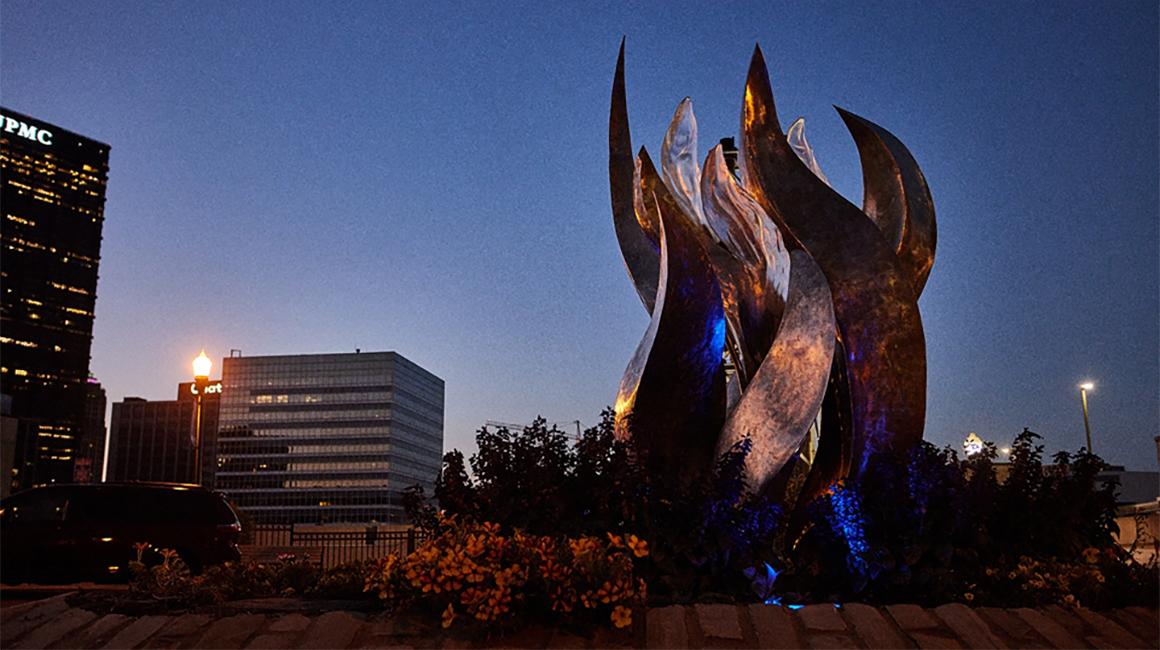Libraries are vibrant spaces for individual and collaborative study. Gumberg Library is committed to creating an environment where students can find the technology and spaces they need to succeed at Duquesne and beyond.
Donors may wish to support continuing or new initiatives such as:
Flexible and technology-integrated spaces for collaborative and individual study.
Makerspaces where students can gather to create, invent, and learn. Resources could include 3D printing, color printing, binding, laminating, crafting and art supplies, etc.
A Special Collections Reading and Research Room for researchers to engage with unique primary source materials in a secure and scholarly setting.
Research, instruction, and consultation services
While academic and information landscapes continue to shift and evolve, the university library remains an intellectual hub of any campus. It is the place where students gather to become scholars and faculty look for support in teaching and research.
Technology is transforming education and the library's role is to teach and support information literacy and critical thinking skills. Existing and envisioned initiatives that will benefit from donor support include:
Digital scholarship platforms that compile and store student and faculty scholarship-in effect, a living and growing collection of the University's entire scholarly output.
Instruction software to develop online learning objects that help students distinguish between "real"
and "fake" news, conduct research beyond the Web, and use information effectively
and ethically.
Research data software that supports our students as scholars and faculty in teaching advanced research
methods.
Comprehensive academic resources and information
Gumberg Library offers seamless access to a range of up-to-date information sources across disciplines. Consistent support is needed to ensure continued access to the digital collections and databases Duquesne students and faculty rely on for their scholarly pursuits. Funding a disciplinary journal or database subscription allows you to advance your own individual academic passions with Duquesne's student scholars.
Duquesne's standing as a research destination relies in part on the maintenance and expansion of its unique collections-resources not found anywhere else in the world. These include longstanding holdings such as the Eastern European Collection and recent additions such as the Irish Literature and Culture collection curated by alumnus and Ambassador Daniel M. Rooney. External funding ensures the preservation process is expedited and unique materials are discoverable to researchers. Donors holding rare or unique collections of primary source materials are invited to contact us about donating their collections.
The ultimate goal is to ensure that collections reflect the institutional research, curricular requirements, and scholarly pursuits of the Duquesne community. Software and technology funding opportunities in this area could enhance the accessibility and discoverability of the library's resources, as well as support advances in data visualization, analysis, and geographic information systems.
Programming for curricular and co-curricular community engagement
Gumberg Library engages in the exchange of ideas between the campus and the community-at-large. Donors are invited to support:
Experiential learning programs such as the Oral History Initiative, which conducts and preserves interviews with populations such as veterans and Spiritans, offers community workshops, and trains students in the methods of professional oral historians. Currently run by a part-time historian, the program could expand with full-time staff funding.
Relevant and engaging programs, speakers, and events at the library, as well as community partnerships such as "The Big Read," in which groups across campus and throughout the region read and discuss a significant book.


